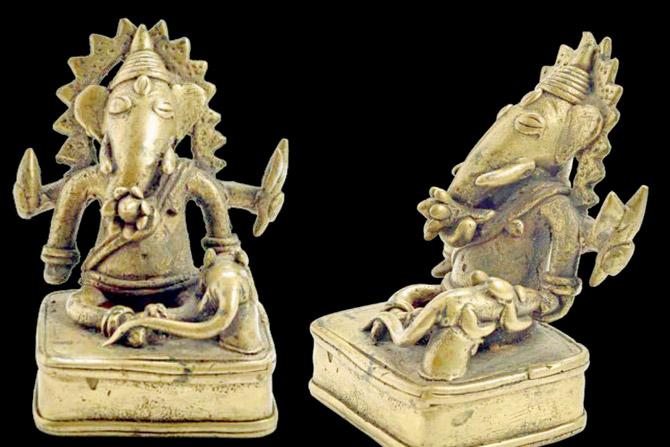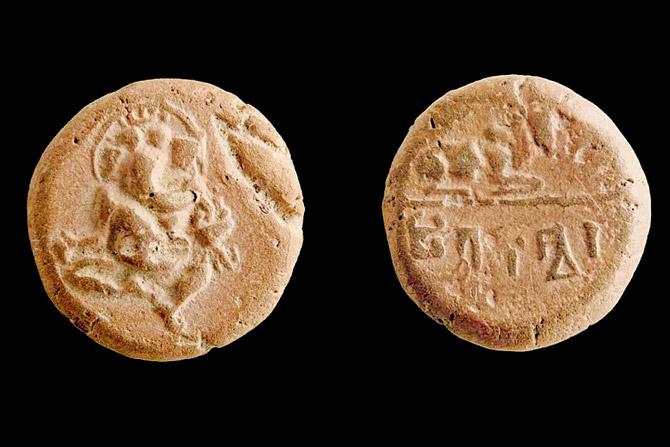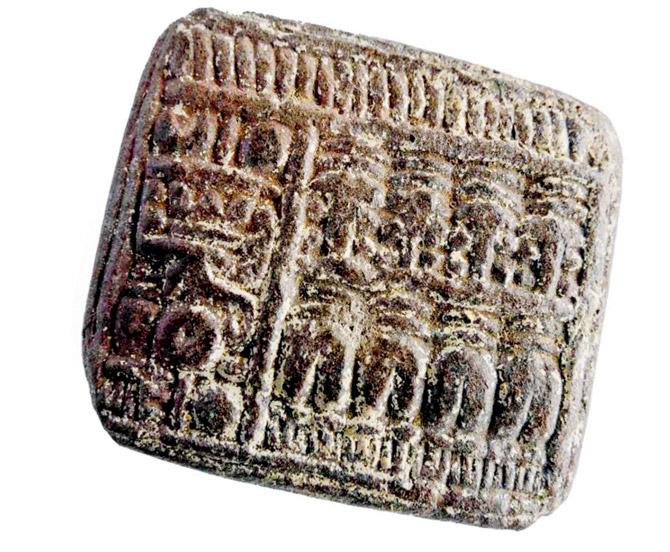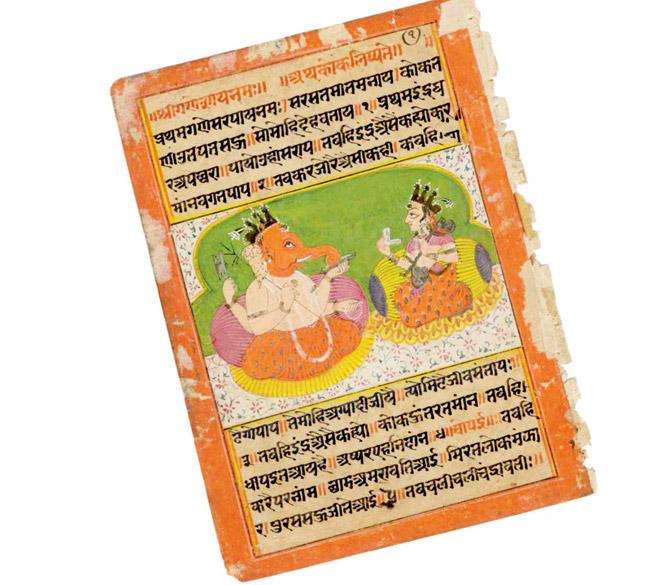From a three-eyed sculpture to an image of the lord with a halo, a new book and exhibition by a city sexologist trace the portrayal of the elephant god down the centuries

Dr Prakash Kothari with his collection
The founder professor and head of the department of sexual medicine at Seth GS Medical College and KEM Hospital, Dr Prakash Kothari has penned several books in his field of expertise. So, to see a book titled Ganesha: Through the Ages authored by him might come as a surprise, but there is an interesting story here. A passionate collector of erotica, Dr Kothari often makes weekend trips to flea markets and Chor Bazaar, and it was here that he came across a terracotta sealing with a bull, a symbol of virility, and an inscription in the Brahmi script.
ADVERTISEMENT

An 18th-century sculpture of the Trinetra Ganesha depicts the god with a third eye, drawing from the Shiva reference
"I was toying with it, when I realised that the sealing had Ganesha on its back with two hands and a halo," recalls the Padma Shri recipient. To authenticate his find, he reached out to the late archaeologist MK Dhavilkar; TS Ravishankar of The Archaeological Survey of India; and Dr Shailendra Bhandare of The Ashmolean Museum of Art and Archaeology, University of Oxford, who all traced it back to the period between the 1st and 4th centuries AD. What made things more interesting is that the oldest Ganesha with epigraphic evidence is believed to be one that was found in China in 531 AD. "And even by the most conservative estimate, this Ganesha was at least 200 years older," says Dr Kothari.

The terracotta sealing, dated between the 1st and 4th centuries, depicting Ganesha with two hands and a halo
These and many more of his finds pertaining to the elephant god have made their way into the book, which was launched yesterday alongside an exhibition featuring Ganesha's portrayal on glass and porcelain moulds, age-old coins, Indian and foreign philately and other postal stationery, and even on stamp papers, matchbox labels and jewellery items like finger rings, earrings, pendants and bracelets. "Up until now, I was enjoying the beauty of these rare finds within a close circle of family and friends, but I realised it's perhaps time to share it in a book," he says.

Ganesha as anga-sanga dating back to the 6th century
Elaborating on the collection, Dr Kothari shares some more facts. "Most Western and Eastern researchers [based on the myths and folktales surrounding Ganesha] believed that he was a Vighnakarta, or creator of obstacles, until the 6th century AD when he became Vighnaharta [the one who alleviates obstacles]," he says, adding that with the halo accompanying his portrayal in as early as the 4th century, it's perhaps time to relook at the contention.

Ganesha and Saraswati on the cover of Kokashastra
There is also an anga-sanga of the god that finds a mention in the book. Dating back to the 6th century, it is a small object of personal worship that people would carry with them while travelling, as they couldn't carry a full-fledged idol of the deity they prayed to. While there are coins dating back to the Maratha period, there is another rare brass statue of the Trinetra Ganesha from the 18th century, alluding to the third eye of Lord Shiva.
But much like his terracotta sealing find, there is another discovery that combines his passion and profession. "I came across a copy of Kokashastra, a medieval Indian text on an erotic theme, with Ganesha and Saraswati on the cover," Dr Kothari shares. "That just goes to show how open we were as a society back then, where sex was not taboo."
Till September 2, 11 am to 7 pm
AT Jehangir Art Gallery, MG Road, Fort.
CALL 22843989
Catch up on all the latest Crime, National, International and Hatke news here. Also download the new mid-day Android and iOS apps to get latest updates
 Subscribe today by clicking the link and stay updated with the latest news!" Click here!
Subscribe today by clicking the link and stay updated with the latest news!" Click here!






